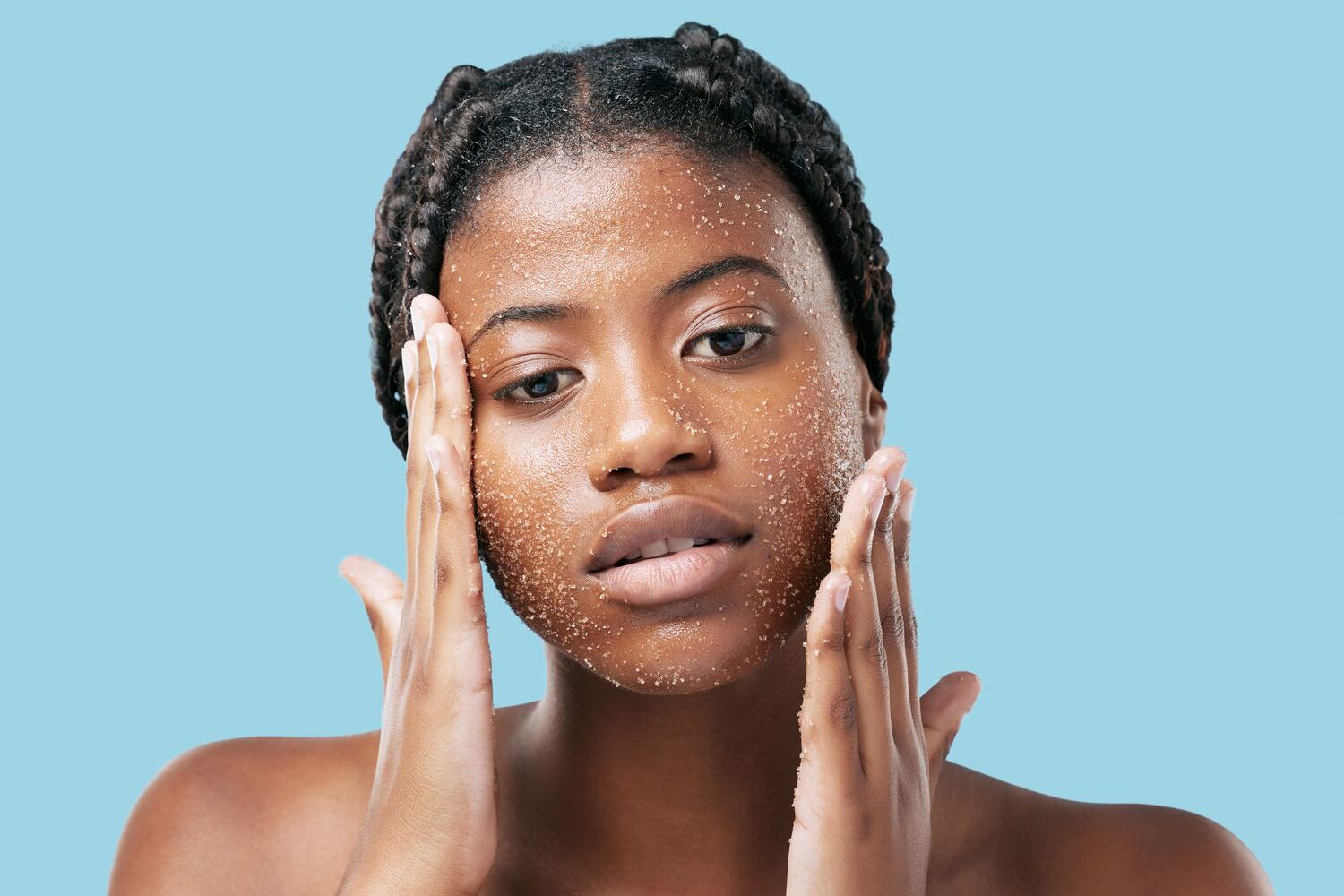
Exfoliating is a skincare step many people overlook, yet it holds the key to a radiant complexion. Why is exfoliating important? Exfoliating removes dead skin cells, unclogs pores, and helps other skincare products penetrate deeper. This process can lead to smoother, brighter skin and even reduce acne. There are two main types: physical and chemical. Physical exfoliants use small grains or brushes to scrub away dead cells, while chemical exfoliants use acids or enzymes to dissolve them. Each type has its benefits and drawbacks, so choosing the right one for your skin type is crucial. Ready to learn more? Here are 33 facts about exfoliating that will change how you think about your skincare routine.
Key Takeaways:
- Exfoliating removes dead skin cells, making skin smoother and preventing acne. It can also improve skin tone and stimulate collagen production for a healthy glow.
- Different skin types require different exfoliation methods, such as using hydrating exfoliants for dry skin and salicylic acid for oily skin. Always protect exfoliated skin with sunscreen.
What is Exfoliating?
Exfoliating is the process of removing dead skin cells from the surface of your skin. It can be done using physical or chemical methods. This practice helps keep your skin looking fresh and healthy. Here are some fascinating facts about exfoliating:
-
Exfoliating can improve skin texture by removing dead cells, making it smoother and softer.
-
Regular exfoliation can help prevent clogged pores, reducing the chances of acne breakouts.
-
Physical exfoliants include scrubs with tiny granules, brushes, or sponges.
-
Chemical exfoliants use acids like alpha hydroxy acids (AHAs) and beta hydroxy acids (BHAs) to dissolve dead skin cells.
Benefits of Exfoliating
Exfoliating offers numerous benefits for your skin. It’s not just about looking good; it’s about maintaining healthy skin. Here are some key benefits:
-
Exfoliating can enhance the absorption of skincare products, making them more effective.
-
It can help even out skin tone by removing dead cells that cause dullness.
-
Exfoliating can stimulate collagen production, which helps in reducing fine lines and wrinkles.
-
It can improve blood circulation, giving your skin a natural, healthy glow.
Types of Exfoliants
There are various types of exfoliants available, each with its unique properties. Knowing the differences can help you choose the right one for your skin type.
-
Mechanical exfoliants physically scrub away dead skin cells using particles like sugar, salt, or microbeads.
-
Enzymatic exfoliants use natural enzymes from fruits like papaya and pineapple to break down dead skin cells.
-
AHAs are water-soluble acids derived from fruits and milk, effective for dry or sun-damaged skin.
-
BHAs are oil-soluble acids, making them ideal for oily and acne-prone skin.
How Often Should You Exfoliate?
The frequency of exfoliation depends on your skin type and the exfoliant used. Over-exfoliating can harm your skin, so it’s essential to find the right balance.
-
People with oily skin can exfoliate 2-3 times a week to keep pores clear.
-
Those with dry or sensitive skin should limit exfoliation to once a week to avoid irritation.
-
Combination skin types can exfoliate 1-2 times a week, focusing on oily areas.
-
Always follow up with a moisturizer after exfoliating to keep your skin hydrated.
Common Myths About Exfoliating
There are many misconceptions about exfoliating that can lead to improper skincare practices. Let’s clear up some of these myths:
-
Myth: Exfoliating daily is necessary for glowing skin. Fact: Over-exfoliating can damage your skin barrier.
-
Myth: All exfoliants are the same. Fact: Different exfoliants serve different purposes and suit various skin types.
-
Myth: Exfoliating can replace cleansing. Fact: Exfoliating and cleansing serve different functions and should both be part of your routine.
-
Myth: Natural exfoliants are always better. Fact: Some natural exfoliants can be too harsh and cause micro-tears in the skin.
Tips for Effective Exfoliation
To get the most out of your exfoliation routine, follow these tips:
-
Always exfoliate on clean skin to avoid pushing dirt and oil deeper into your pores.
-
Use gentle, circular motions when applying physical exfoliants to prevent skin damage.
-
Start with a lower concentration of chemical exfoliants and gradually increase as your skin builds tolerance.
-
Avoid exfoliating if you have open wounds or sunburned skin to prevent further irritation.
Exfoliating for Different Skin Types
Different skin types require different exfoliation methods. Here’s how to tailor your routine:
-
For dry skin, use hydrating exfoliants like lactic acid to avoid stripping natural oils.
-
Oily skin benefits from salicylic acid, which penetrates deep into pores to remove excess oil.
-
Sensitive skin should opt for gentle exfoliants like enzyme-based products to minimize irritation.
-
Mature skin can benefit from glycolic acid, which helps in reducing the appearance of fine lines.
Exfoliating and Sun Protection
Exfoliating can make your skin more sensitive to the sun. Here’s how to protect it:
-
Always apply sunscreen after exfoliating to shield your skin from harmful UV rays.
-
Consider exfoliating at night to give your skin time to recover before sun exposure.
-
Wear protective clothing and hats if you plan to be outdoors for extended periods.
-
Use a broad-spectrum sunscreen with at least SPF 30 for adequate protection.
DIY Exfoliants
You can make effective exfoliants at home using simple ingredients. Here are some DIY ideas:
- Mix sugar with honey for a gentle scrub that also moisturizes your skin.
Final Thoughts on Exfoliating
Exfoliating isn't just a beauty trend; it's a game-changer for your skin. Regular exfoliation helps remove dead skin cells, unclog pores, and promote a smoother, more radiant complexion. Whether you prefer physical scrubs or chemical exfoliants, finding the right method for your skin type is key. Overdoing it can lead to irritation, so moderation is crucial. Remember, everyone's skin is different, so what works for one person might not work for another. Always listen to your skin and adjust your routine as needed. With the right approach, exfoliating can be a simple yet effective addition to your skincare regimen. So, give your skin the care it deserves and enjoy the benefits of a healthy, glowing complexion. Happy exfoliating!
Frequently Asked Questions
Was this page helpful?
Our commitment to delivering trustworthy and engaging content is at the heart of what we do. Each fact on our site is contributed by real users like you, bringing a wealth of diverse insights and information. To ensure the highest standards of accuracy and reliability, our dedicated editors meticulously review each submission. This process guarantees that the facts we share are not only fascinating but also credible. Trust in our commitment to quality and authenticity as you explore and learn with us.


